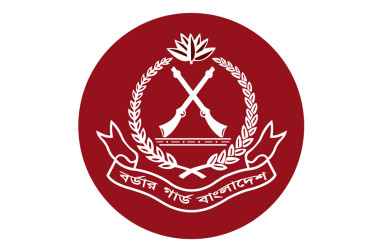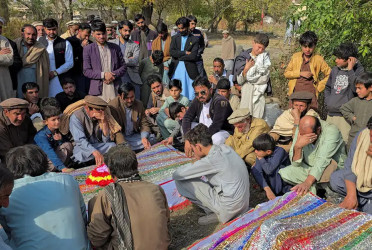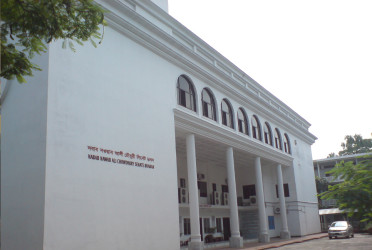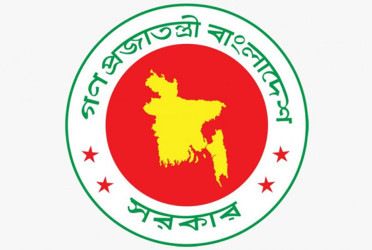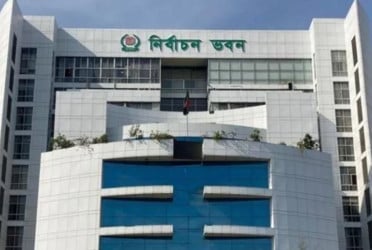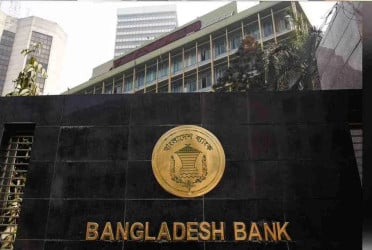If any borrower becomes fail in repaying the loan amount, then the bank could put the assets of the guarantor on auction to adjust the payment. According to Money Court Law 2003, the banks have no restriction on adjusting payment of the loans by putting assets of the guarantors on auction. The matter was clearly stated in a recent verdict of the Supreme Court.
According to the bankers, the verdict of the Supreme Court paved the way to make repayment of the loans if the borrower fails to do it. The matter of debt collection of defaulted loans will get a new momentum.
In this regard, Mahbubur Rahman, the managing director of Mutual Trust Banks, told The Bangladesh Pratidin, “Many of our cases over the defaulted loans are pending. The historical verdict delivered by the honorable Justice is a milestone and will help us in recovering defaulted loans.”
One incident regarding it in Gazipur paved the way to have such a verdict. Ali Reza Shawon, the owner of AK Ali Traders, which was engaged in importing machineries, took 11 crore from the bank. It was a mortgage loan. Besides, he made his businessman friend Dewan Murad Hossain the guarantor of the loan. The loan became defaulted in 2011 and the loan provider Agrani Bank was to get Tk 19 crore in principle and interest. The bank filed case in Gazipur Money Loan Court to recover the payment. The case was filed against the guarantor beside the borrower. The court in 2015 ordered to recover the payments by selling the mortgaged assets of the borrower and the bank held auction. As there was no buyer participated in the tender, the bank decided to acquisitioned the assets of the borrower. The bank recovered half of their debts with the selling value of the assets. However, the bank appealed to the court to sell off the assets of the guarantor to recover the residual money. The court also ordered to repay the loan by selling an Auto Rice Mill and a Rest House owned by the guarantor. The guarantor made a writ in the high court to suspend the order. In 2015, the high court gave an order to suspend the auction activities for six months. The bank submitted a leave to appeal against the order of high court but the Chamber Judge Court of Appellate division stayed the order of high court and sent the appeal to the court of Chief Justice for hearing.
The Appellate Division disposed of that appeal in January this year. The Appellate Division annulled the order of the High Court and announced the verdict.
In a full judgment, the court said there is no bar to adjust the bank's debt by auctioning the property of a guarantor under the Credit Courts Act, 2003. According to the judgment, under the power of Section 6(5) of the Credit Courts Act, 2003, the financial institution can file a case against the guarantor of the loan if the original borrower defaults. It states that the judgment, order or decree passed by the court shall be enforceable against all the defendants jointly and severally. The judgment states that in order to recover the claim by issuing a decree, the court will first attach the property of the principal defaulter and then as much as possible the property of the guarantor. But if the guarantor pays the decree claim on behalf of the plaintiff, the said decree shall be transferred in their favor and they can enforce the same against the defaulter, the judgment also stated. The Appellate Division said in the observation of the judgment, many times the guarantors or debtors take orders on their behalf by misleading the High Court in such matters. And the High Court often fails to understand the 'original spirit' of the law.
The Appellate Division has directed the High Court to conduct the proceedings with caution in the matter of writs. Bank company law experts say, from now on, no one will easily agree to be a loan guarantor. And when a guarantor is not available, borrowers will be very cautious while taking loans. The writs of the guarantors still pending in the High Court to prevent the auction will be dismissed as per the judgment of the Appellate Division. Henceforth, debtors cannot use the court's stay order as a shield to avoid the obligation to repay the entire loan with interest. In this historic judgment of the Appellate Division, the way to collect the money has been smoothed.
Bank Company Law Expert and Deputy Attorney General Imran Ahmed Bhuiyan told The Bangladesh Pratidin, “In almost all cases, one or more persons or organizations guarantee as bailer or guarantor against loans taken from banks or financial institutions. In case of default, the guarantor is also liable to repay the loan. And that's why despite not taking loans, the guarantors also become defaulters.” And therefore, in case of default, there is a provision to file a case against not only the borrower but also the guarantor.”
When asked about this, Attorney General AM Amin Uddin told The Bangladesh Pratidin, “If a borrower fails to pay the money to the bank, it is stated in law that the bank can collect the money by auctioning the property of his guarantor. Bank's own lawyers should take initiative for quick settlement of such pending cases in the money loan court.”
According to Supreme Court sources, the guarantors have filed 13,641 writs in the last five years against settling the bank's debt by selling the property at auction. 80 percent of these writs were ordered in favor of the writ petitioners. As a result, nearly Tk 40 thousand crores of defaulted loans are stuck. 3, 144 writ petitions filed in 2022 in which stuck in about Tk 9,000 crore. 2, 862 writ petitions have been filed in 2021. 6, 400 crores of defaulted loans are stuck in these applications. In 2020, there were 2, 113 applications, in which 5, 800 crore rupees were withheld.
There are 72,000 pending cases filed by banks and financial institutions to recover defaulted loans worth about Tk 160,000 crore in various debt courts of the country. Among them, there are 26,000 cases of Tk 70,000 crore in the four financial loan courts of Dhaka. There are about 50, 000 persons as guarantor defendants in these cases.
@The report was published in Bengali on print and online versions of The Bangladesh Pratidin on May 15 and rewritten in English by Lutful Hoque


















